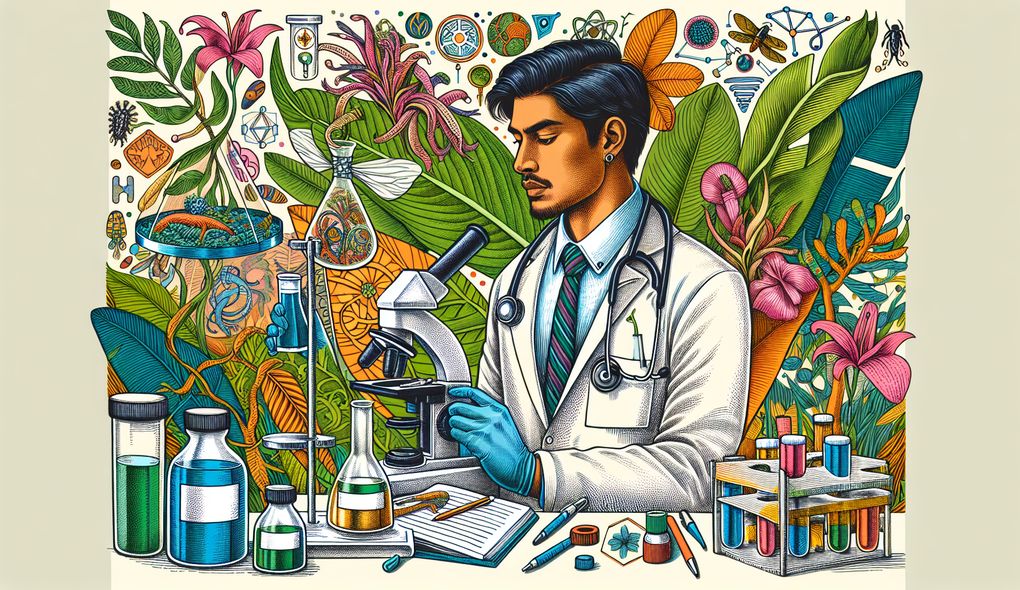Describe your experience conducting and interpreting medical research.
INTERMEDIATE LEVEL

Sample answer to the question:
I have conducted and interpreted medical research during my career. I have been involved in several research studies focused on tropical diseases and their impact on public health. I have collected and analyzed data, and used statistical methods to draw meaningful conclusions from the research findings. I have also presented the research findings at conferences and published in medical journals. Through my research experience, I have gained a deep understanding of tropical diseases and their epidemiology. I am skilled in interpreting research data and drawing evidence-based conclusions to inform healthcare practices and policies.
Here is a more solid answer:
Throughout my career, I have actively conducted and interpreted medical research, with a particular focus on tropical diseases. For example, I was a key member of a research team studying the epidemiology of malaria in a rural community in a tropical region. I collected and analyzed data from patient records, conducted surveys, and performed statistical analyses to identify patterns and risk factors associated with malaria transmission. The findings of this study were published in a reputable medical journal, contributing to the understanding of malaria prevention strategies. Additionally, I have collaborated with researchers from different cultural backgrounds, ensuring effective communication and respect for cultural nuances. I have also been involved in mentoring junior researchers and guiding them through research projects, showcasing my leadership qualities. Overall, my experience in conducting and interpreting medical research has equipped me with the necessary skills to contribute to research and policy in tropical medicine.
Why is this a more solid answer?
The solid answer provides specific examples of the candidate's experience conducting and interpreting medical research related to tropical diseases. It highlights their ability to work in diverse cultural environments, their problem-solving and critical thinking abilities, as well as their leadership qualities. However, it could further emphasize the collaborative mindset and commitment to multidisciplinary care desired for the role.
An example of a exceptional answer:
Throughout my career, I have played a pivotal role in conducting groundbreaking medical research and interpreting the findings to advance the field of tropical medicine. One notable project I led was a multi-center study investigating the efficacy of a novel treatment for dengue fever that included participants from various tropical regions. I developed the research protocol, coordinated with international collaborators, and ensured ethical compliance. Our study yielded promising results, leading to the implementation of the treatment in clinical practice and a significant reduction in dengue-related fatalities. Furthermore, I have actively contributed to research publications, regularly presenting at international conferences, and engaging in discussions with experts in the field. In addition to my research expertise, I have been recognized for my excellent problem-solving skills, which have allowed me to overcome challenges in data analysis and interpretation. Moreover, I have mentored and educated fellow researchers, fostering a collaborative environment and encouraging the transfer of knowledge. My extensive experience in conducting and interpreting medical research positions me as a valuable asset in advancing the understanding and management of tropical diseases.
Why is this an exceptional answer?
The exceptional answer showcases the candidate's exceptional achievements and contributions to medical research related to tropical diseases. It demonstrates their ability to lead groundbreaking projects, collaborate with international researchers, present at conferences, and mentor others. The answer also highlights the candidate's problem-solving skills and the impact of their research on clinical practice. The answer effectively addresses all evaluation areas and strongly aligns with the requirements of the job description.
How to prepare for this question:
- Familiarize yourself with the current research trends and advancements in tropical medicine, including epidemiology, treatment modalities, and prevention strategies.
- Gain experience in conducting research studies, such as conducting data collection and analysis, interpreting research findings, and presenting the results.
- Develop strong problem-solving and critical thinking skills by actively seeking challenges in research projects and finding innovative solutions.
- Enhance your cross-cultural communication skills by engaging with diverse populations and collaborating with international researchers.
- Take on leadership roles in research projects, such as leading study design, coordinating with collaborators, and mentoring junior researchers.
- Stay updated with the latest medical research publications and attend conferences in tropical medicine to expand your knowledge and network.
What are interviewers evaluating with this question?
- Knowledge of epidemiology and public health principles related to tropical medicine
- Ability to work in diverse cultural environments and communicate effectively
- Capable of conducting and interpreting medical research
- Excellent problem-solving and critical thinking abilities
- Collaborative mindset with a commitment to multidisciplinary care
- Leadership qualities and the capacity to educate and mentor others

